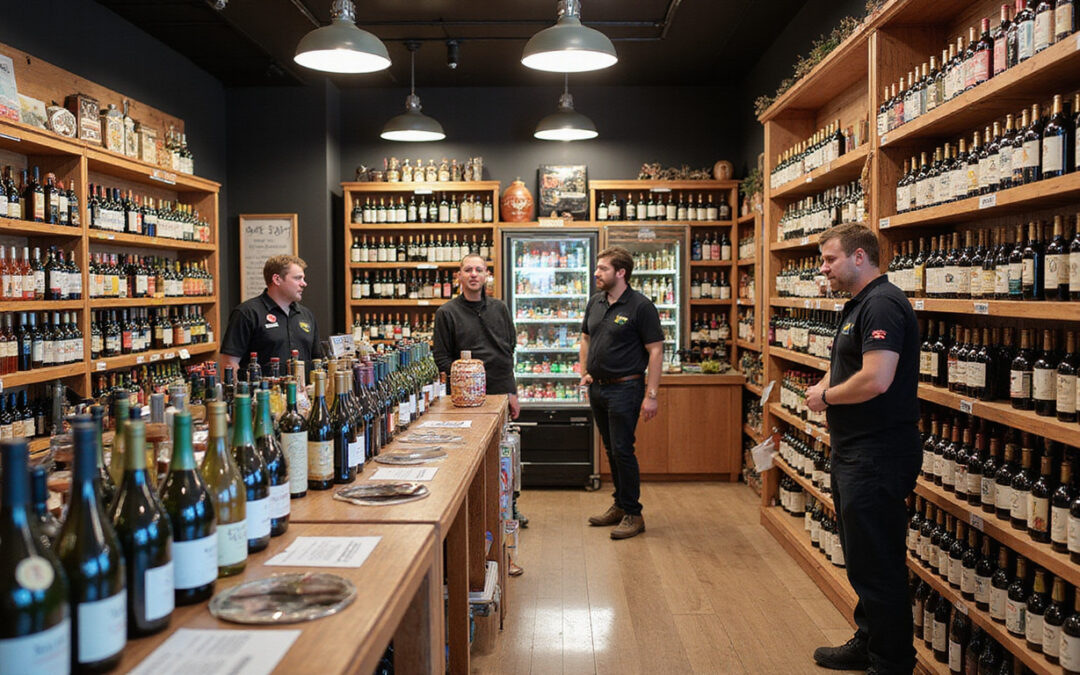Alcohol retail certification helps businesses sell alcoholic drinks safely and legally. It makes rules easy. You run a liquor store, a bar, or another outlet. You earn trust and boost sales with the right certification. This article shows simple steps to get certified and explains how certification can grow your business.
Understanding Alcohol Retail Certification
Alcohol retail certification is a set process. You get trained, take a test, and gain permission. This process covers local and national alcohol rules. It also covers how to check customer IDs and refuse service when needed. Many states require this certification. It stops fines and legal problems. It also makes staff skilled and builds safe communities.
A report by the National Institute on Alcohol Abuse and Alcoholism shows that responsible alcohol retail cuts alcohol-related harms. Certification is a public health win.
Why Alcohol Retail Certification Matters for Your Business
- Legal Compliance: Certification shows you follow all alcohol laws. This stops costly legal penalties.
- Sales Optimization: Certified staff handle alcohol sales well, improving customer service and sales.
- Risk Management: Training lowers the risk of sales to underage or intoxicated people.
- Reputation Building: Customers, regulators, and suppliers see a certified business as trustworthy.
- Employee Development: Certification teaches staff their roles. This increases their confidence and skill.
Steps to Get Alcohol Retail Certification
Step 1. Research State and Local Requirements
Find out your local rules. Many states set up their own rules. They may require a state-approved alcohol awareness course. Also check with your local Alcoholic Beverage Control (ABC) agency.
Step 2. Choose a Certified Training Program
Pick an approved course. You will learn about:
• Alcohol laws and rules
• Verifying customer identification
• Refusing service to intoxicated or underage customers
• Consequences of not following rules
• Safe customer service
The training can be in person, live online, or through self-paced courses. Examples include TIPS, ServSafe Alcohol, and programs from your state.
Step 3. Sign Up Your Team and Take the Course
Enroll each staff member who handles alcohol sales. It is key that everyone meets legal demands. The training builds the skills needed for safe alcohol transactions.
Step 4. Pass the Certification Exam
Most courses include an exam. You must show that you understand alcohol laws and safe sales practices. Preparing well helps pass on the first try. Retaking the exam can delay certification and sales.
Step 5. Submit Your Documents
After passing, send your documents to the licensing agency. These papers include:
• Certificates of completion
• Employee IDs
• Application forms
• Any fees you need to pay
Keep extra copies for inspections.
Step 6. Display Your Certification and Inform Customers
Many rules require you to show your certification publicly. This builds trust. Customers see that you follow the law and serve alcohol responsibly.

Step 7. Maintain Certification with Renewals and Refresher Training
Alcohol laws change often. You must renew your certification. Track your renewal dates. Make sure staff attend refresher courses. This way, you always follow the best practices.
Best Practices to Boost Sales with Certification
Certification is only the start. To boost sales and compliance, try these tips:
• Train Regularly: Hold short training sessions to keep skills fresh.
• Verify IDs Effectively: Use electronic ID scanners if you can.
• Create a Friendly Atmosphere: Teach staff to say no politely while keeping customers happy.
• Use Certification as a Marketing Tool: Show your certification on signs, websites, and social media.
• Monitor Compliance: Check your practice regularly to fix issues fast.
Alcohol Retail Certification: Frequently Asked Questions
What is the typical cost of certification?
Costs change by state and provider but usually range from $15 to $75 for each person. Some courses offer group deals.
How often must I renew my certification?
Renewal happens every one to three years. Many courses ask for a refresher and a new exam to keep your knowledge current.
Can I complete certification online?
Yes, many approved programs are online. They give you flexibility, especially for remote teams. Check that the course meets state standards.
Conclusion
Alcohol retail certification is a must for safe, legal, and profitable alcohol sales. By learning your local rules, training your staff well, and keeping your documents updated, you secure your business for the long term. This certification builds trust with customers and helps you stay ahead in a competitive market. Stay informed, train your team often, and use certification to show that your business cares about safe and responsible alcohol sales.


